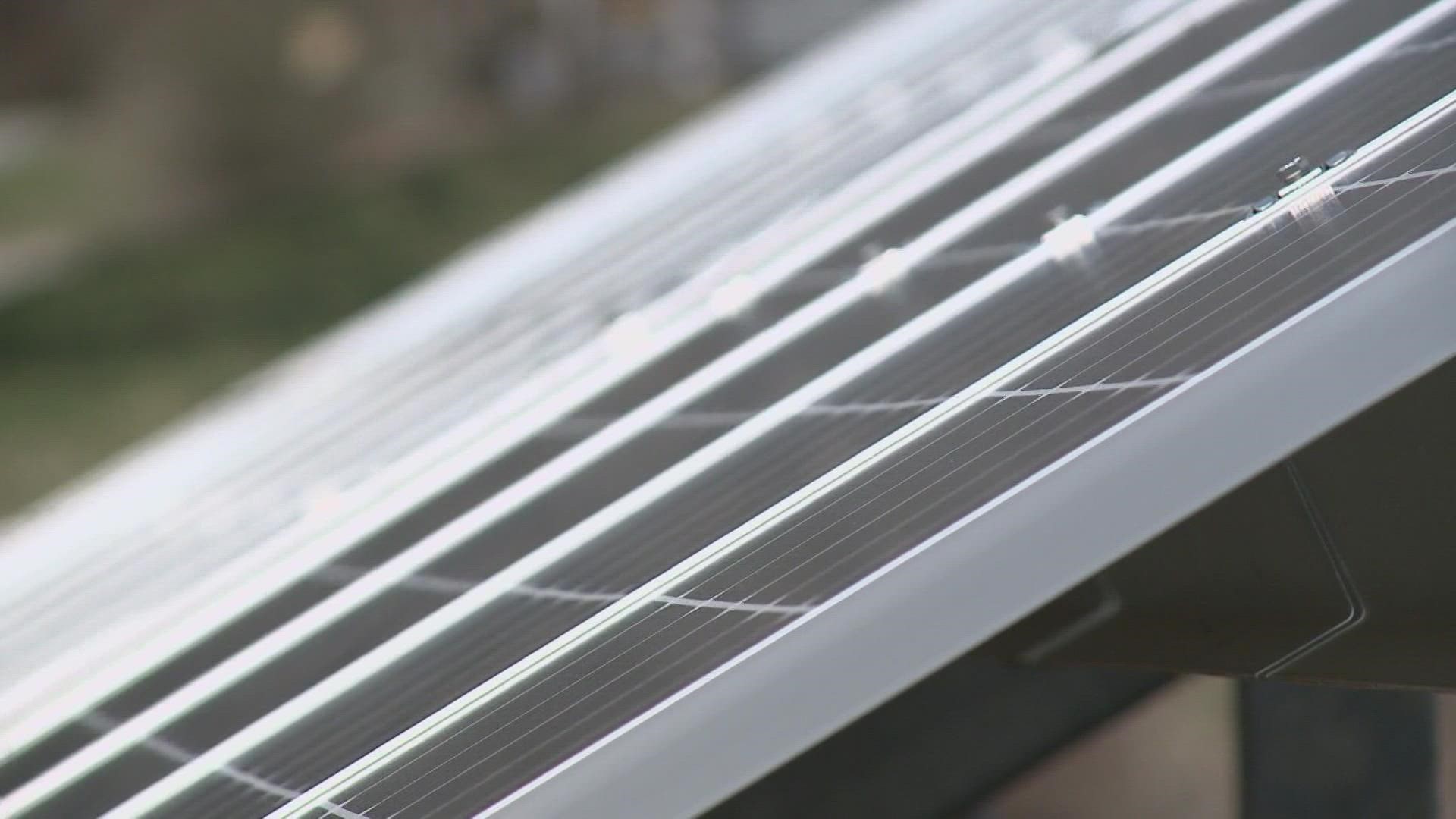DAMARISCOTTA, Maine — A field of 600 solar panels might not look like the mission of either a summer camp or a land trust, but the leaders of those groups call it an ideal fit.
“As a land trust we are responsible for the land,” Steven Hufnagle of Coastal Rivers Conservation Trust said. “And the land is changing dramatically from climate change. So, we need to do something about that.
The something turned out to be the new solar array in one of the land trust’s fields at the Round Top Center in Damariscotta.
Kieve Wavus Education, which operates two summer camps and a year-round leadership training program, also saw a clear connection to its core mission.
“What we try to do is teach kids to work together for the common good, so we needed to model that behavior," director emeritus Henry Kennedy said.
Modeling, he said, meant partnering with Coastal Rivers on the solar project, which neither group could handle on its own.
“Plus, it just made a ton of sense economically. It's cheaper to buy the power from the sun than other sources,” Kennedy said.
The two nonprofits wanted to make a commitment to fighting climate change by cutting their carbon footprints as much as possible. They converted heating equipment to electric heat pumps and said their buildings will now be almost totally powered by the electricity from the solar panels.
The power will go into the grid, and Hufnagle said it should offset all of the electricity they use.
Kennedy said to qualify for some solar assistance programs, the camps have to build a separate system for their commercial kitchens, which they are doing. At that point, he said, their electrical use will also be fully offset by solar.
But does a small project like this really help battle climate change?
“Every little bit anyone can do is great,” Allison Barber, project manager for ReVision Energy, said. It designed and built the solar array and helped create the financing plan.
She said the project will generate over 300,000 kilowatt-hours of electricity per year to cover all the two groups use. And it'll help them financially.
“It will save both nonprofits thousands and thousands of dollars over the next forty years we expect it to be here,” Barber said.
The project cost roughly $600,000 to build, according to Hufnagle.
That upfront cost was paid by an individual investor brought to the project by ReVision. The investor will get the tax benefits from the project, which the nonprofits can’t use anyway.
For the first five years, Coastal Rivers and Kieve Wavus will pay their monthly electric bill to the investor, at a slight discount from what they had been paying. The investor will then pay the required portion to CMP.
After five years, the land trust and the camps can buy the whole project for about half of the original price and then operate it for their own benefit.
“And once we own it, we aren’t paying for electricity at all,” Hufnagle said.
“The return is a lot better than the stock market,” Kennedy added.
The project is open for the public to see, and both groups said they hope it will inspire other people, businesses, and nonprofits to look seriously at converting to solar.

